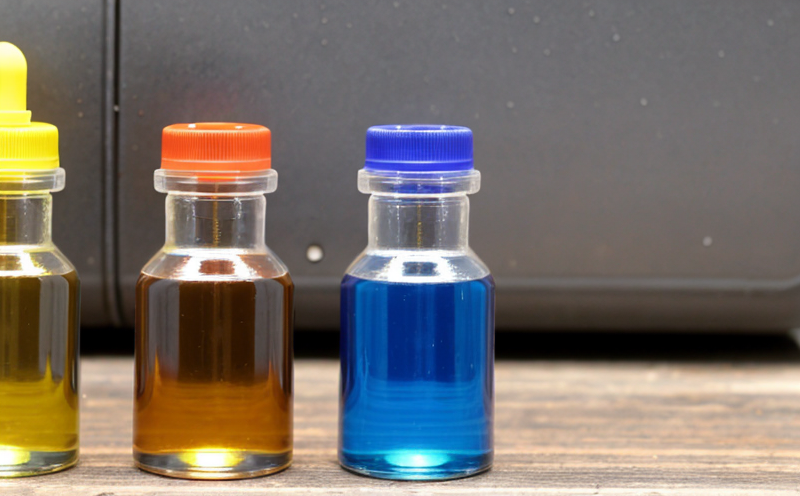Soft Drink pH Testing
The quality and safety of soft drinks are paramount in the global beverage industry. Properly conducted pH testing is an essential component in ensuring that products meet consumer expectations and regulatory requirements.
In the realm of chemical analysis, pH measurement plays a critical role in determining the acidity or alkalinity of a solution. For soft drinks, this test is vital because it helps to:
- Ensure flavor consistency: The taste profile of a drink can be significantly influenced by its pH level.
- Increase shelf-life: Properly balanced pH levels can extend the product's stability and prevent premature spoilage.
- Avoid health risks: Excessive acidity or alkalinity in soft drinks can pose potential risks to consumers.
The process of soft drink pH testing involves several steps. Initially, a sample is taken from the product and prepared for analysis according to standard procedures. The sample must be representative of the entire batch to ensure accurate results. Next, the sample is tested using precise instruments such as pH meters or indicators.
The ISO 354 standard provides specific guidelines for the measurement of acidity in beverages like soft drinks. This international standard ensures that all laboratories adhere to uniform methods and criteria when conducting pH tests. The testing procedure typically involves diluting a sample with distilled water, mixing it thoroughly, and then measuring its pH using an electrode.
The results obtained from these tests are crucial for quality control teams who need accurate data to make informed decisions about product formulation and manufacturing processes. By adhering strictly to international standards, laboratories like Eurolab ensure that their findings are reliable and can be trusted by industry stakeholders.
Why It Matters
The importance of soft drink pH testing cannot be overstated in today’s competitive beverage market. Consumers expect not only great taste but also consistency across all batches of their favorite drinks. A slight variation in pH can lead to significant changes in flavor and texture, affecting customer satisfaction.
From a regulatory perspective, meeting specific pH levels is often required by food safety agencies around the world. For instance, certain countries have set limits on the maximum allowable acidity for carbonated beverages to prevent potential health issues such as tooth erosion or stomach upset.
In addition to consumer and legal considerations, maintaining proper pH balances also contributes significantly to brand reputation. Companies that consistently produce products within specified ranges are more likely to build long-term trust with their customers. Furthermore, adhering to these standards demonstrates a commitment to ethical business practices, which is increasingly important in today's marketplace.
For companies involved in research and development (R&D), accurate pH testing is essential for optimizing product formulations. By understanding how slight variations impact the overall quality of the drink, R&D teams can innovate more effectively while minimizing risks associated with introducing new products to market.
Dedicated Service from Eurolab
At Eurolab, we offer comprehensive services for soft drink pH testing tailored specifically to meet the needs of our clients in the beverage industry. Our team of highly trained professionals uses state-of-the-art equipment and follows strict protocols outlined by international standards such as ISO 354.
To start, our experts carefully select samples from various production batches, ensuring that every test reflects the true nature of the product being evaluated. Using advanced pH meters calibrated according to industry best practices, they conduct precise measurements under controlled conditions.
The results generated by Eurolab are not only accurate but also highly reproducible. This consistency is critical for companies looking to maintain tight control over their production processes and ensure compliance with both internal quality standards as well as external regulations.
Our commitment does not end there; we provide detailed reports accompanied by actionable insights based on the test results. These reports help our clients identify areas where improvements can be made, whether it's adjusting ingredient proportions or tweaking manufacturing techniques.
International Acceptance and Recognition
- ISO 354: This international standard sets out the procedures for measuring acidity in beverages including soft drinks. It is widely recognized by regulatory bodies worldwide, making it a key reference point for laboratories performing pH tests.
- ASTM D1897-02(2016): Although primarily focused on distilled water, this American Society for Testing and Materials standard offers valuable guidance that can be adapted for use in soft drink analysis.
- EN 1354: This European Norm provides additional context regarding the measurement of acidity in non-alcoholic beverages like those found in the soft drinks category.
The widespread adoption and acceptance of these standards reflect their importance within the global beverage industry. By aligning ourselves with such recognized benchmarks, Eurolab ensures that our services are respected both locally and internationally.





